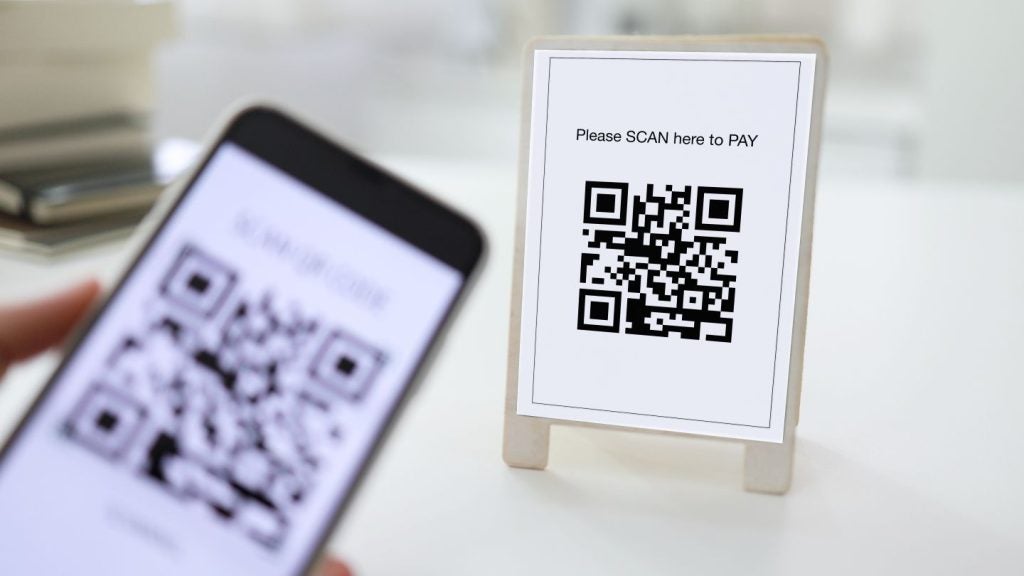According to technology firm Ovum, 61% of banks will significantly increase their payment technology expenditure in 2016. The firm also found that this boost in spending can be partly attributed to a larger emphasis on security. Patrick Brusnahan talks to experts on why security is set to take 2016 by storm
Ovum’s report, 2016 Trends to Watch: Payments, stated that banks’ raising investment in payment tech is aided by growing concerns over security and the need for regulatory compliance, with over 70% of retail banks reporting a rise in expenditure of security and anti-fraud technologies.

Access deeper industry intelligence
Experience unmatched clarity with a single platform that combines unique data, AI, and human expertise.
In addition, 34% of banking respondents cited biometric technology as a priority in the coming year.
Gilles Ubaghs, senior analyst at Ovum, explained: "Security is always a core issue for both vendors and enterprises alike and the market is set to see renewed levels of investment activity in 2016. This will be driven by the need to find new means of authentication while reducing risk and the burgeoning growth in tokenisation technologies. Investment in the US in particular is likely to be high as the country continues its shift towards EMV."
Prepaid offerings
One solution offered to combat fraud and increase security is prepaid cards. The simplicity of the product also allows financial institutions to reach out to the unbanked populations of the world.
Ross Macmillan, head of research and intelligence at allpay, said: "Globally, there is huge demand for prepaid cards for the unbanked across Europe and Africa.

US Tariffs are shifting - will you react or anticipate?
Don’t let policy changes catch you off guard. Stay proactive with real-time data and expert analysis.
By GlobalData"Governments around the world are looking towards prepaid for electronic payment solutions to fight fraud, combat corruption and deliver social benefits – particularly in Africa."
John Sharman, CEO of Tuxedo Money Solutions, said: "Prepaid card usage varies across Europe. Italy currently leads the way and has the highest growth prospects both in terms of transaction value and volume of cards in issue. Conversely, the Austrian prepaid marker is in its infancy and, in Germany, 80% of all consumer transactions are conducted in cash.
"The need for an alternative method of paying for goods and services abroad has paved the way for new ‘cashless’ options, which has prompted further advancements in prepaid payment technologies."
High-profile breaches
While keeping customers’ data and finances secure is crucial, another important aspect is maintaining banks’ reputations.
2015 saw a number of high profile breaches. A security hole in Halifax and Bank of Scotland’s online banking facilities left tens of thousands of customers at risk of fraud. JPMorgan Chase was also hacked during 2015 in what may be part of the ‘largest US bank breach ever,’ according to the US attorney’s office. And this is after 500 million financial records were stolen overall in 2014.
Nick Mothershaw, UK&I director of identity and fraud at Experian, thought that 2015 was bad for fraud. He said: "We’ve seen ID fraud attempts soar this year, led primarily by current account fraud, which gives IS thieves a stepping stone to a wider range of financial products.
"The brunt of recent increases in fraud has been felt by older members of society, who often have a good credit rating and have lived at the same address for a long time. They now account for one in twenty detected current account frauds in the UK."
Anthony Duffy, director of retail banking at Fujitsu, expects this issue to enter the limelight in 2016.
He said: "I anticipate continued focus around security. I fully expect this to remain a hot topic throughout the new year. Recent data breaches have highlighted how vulnerable some organisations are to cyber-crime. The consequences of such breaches can be significant for customers and institutions alike – financial loss, reputational damage and an adverse impact on the company share price might all be expected.
"The fact that hackers only have to get lucky once, while banks have to remain vigilant and ahead of all the criminals all of the time, means that this will remain a key area of management focus in 2016 (and for years to come)."
David Gibson, vice president of strategy and market development at Varonis, believed that the situation will worsen before it improves.
He told EPI: "The Identity Theft Resource Centre (ITRC) reports a total of 641 data breaches recorded publicly in 2015 through November 3. Most organisations know this number represents the tip of the iceberg. The frequency of known data breaches will increase in 2016, due not only to increasing privacy and breach disclosure laws, but also the increasing failure of traditional perimeter-focused security investments to protect valuable data.
"Employees’ use of mobile devices and companies’ migration of IT workloads to the cloud will also contribute to a sharp rise in breaches. Over time, this should help to shift priorities towards investing in more proactive data-centric protection, but it is likely things will become worse before they get better."
Gibson added: "In recent years, we have seen the careers of several top executives suffer in the wake of cyberattacks. This will accelerate in 2016. Blame for data breaches is shifting from IT to the C-suit.
"Data impacts every facet of an organisation. If management is not investing in and focusing heavily on securing data and its use, it is now understood that they are putting the entire company and its stakeholders at risk."
Narayan Sivaram, vice-president and regional head of cards and payments at Infosys, believes a way to alleviate security concerns is cashless payment technology.
He commented: "In 2016, security and trust will be high on the agenda for payment providers. As providers seek to fulfil their objective of gaining new customers in 2016, they will also invest in fraud prevention. This will be especially important as contactless payments can leave users open to fraud.
"Therefore in 2016, it will be important for providers to secure customer trust by investing in technologies which protect them from losing money to fraudsters."
Dan Salmons, managing director of PayPoint Mobile and Online, takes an alternative view that security is not a huge deciding factor for consumers.
He said: "Will security become a new differentiator for brands? I’m not so sure; I think people view it as a ‘hygiene factor’ they can take for granted. But, building that trust with consumers will undoubtedly require merchants to depend on their PSP as an expert adviser on payments security and compliance, as much as a technology provider."







